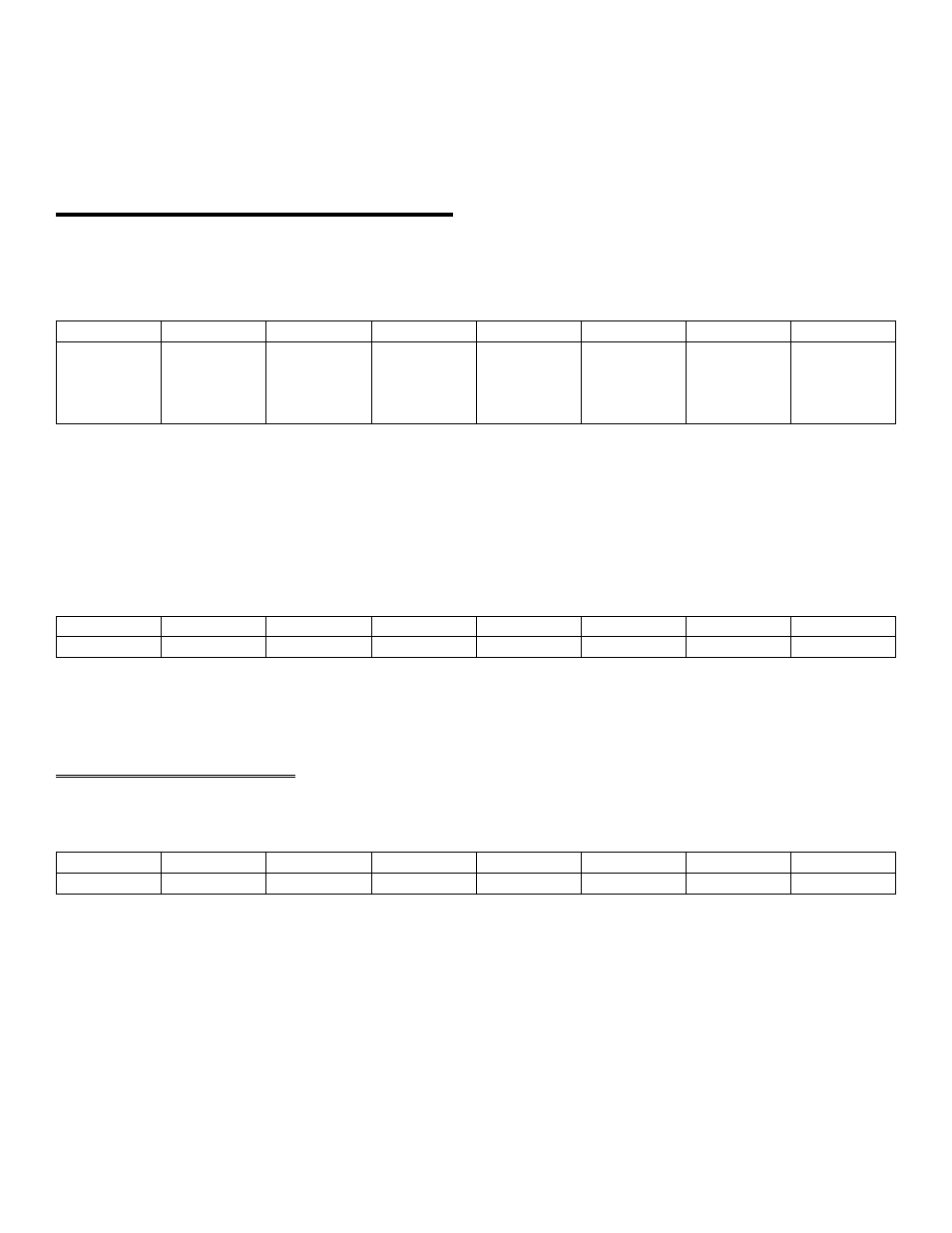6 four- bit digital i/o registers, 7 status register – Measurement Computing CIO-DAS16/330 User Manual
Page 15

Bits 3-0 contain the starting channel number and bits 7-4 contain the ending channel number. If you wanted to scan
channels 1, 2, 3 in that order, you could do so by placing the 3 in bits 7-4 and the 1 in bits 3-0.
NOTE
Every write to this register sets the current A/D channel MUX setting to the number in bits 0-3. See
BASE + 8. Every write to this register clears the FIFO buffer.
4.6 FOUR- BIT DIGITAL I/O REGISTERS
BASE ADDRESS +3
When read...
DI0,
TRIG
DI1
DI2,
CTR0
GATE
DI3
0
0
0
0
0
1
2
3
4
5
6
7
READ
The signals present at the inputs are read as one byte, the most significant four bits of which are always zero. The
pins 25 (digital input 0) and 24 (digital input 2) digital inputs have two functions each.
The TRIG function of digital input 0 may be used to hold off the first sample of an A/D set by holding it low (0V)
until you are ready to take samples, which are then paced by the 8254. It can also be used as the source of an external
start conversion pulse, synchronizing A/D conversions to some external event.
When written to...
DO0
DO1
DO2
DO3
X
X
X
X
0
1
2
3
4
5
6
7
WRITE
The upper four bits are ignored. The lower four bits are latched TTL outputs. Once written, the state of the inputs
cannot be read back because a read back would read the separate digital input lines (see above).
4.7 STATUS REGISTER
BASE ADDRESS +8
CH1
CH2
CH4
CH8
INT
MUX
U/B
EOC
0
1
2
3
4
5
6
7
A read mostly, one-function-write register.
READ
EOC = 1, the A/D converter is busy. EOC = 0, it is free.
U/B = 1, the amplifier is in Unipolar mode. U/B = 0, is bipolar.
MUX = 1, Channels are configured 16 single ended. MUX = 0, 8 differential.
INT = 1, an external pulse has been received. INT = 0, the flip-flop is ready to receive a pulse.
There is a flip-flop on the TRIGGER input (pin 25) which will latch a pulse as short as 200 ns. After being triggered, this
flip-flop must be reset by a write to this register. Your interrupt service routine must do this before another interrupt
trigger can be received.
11
